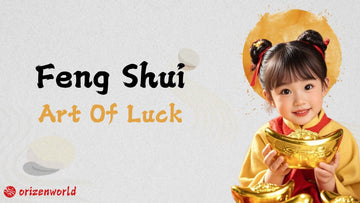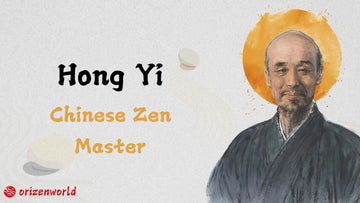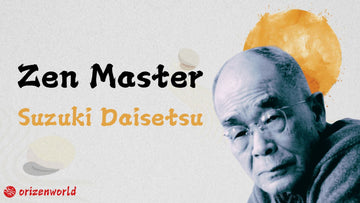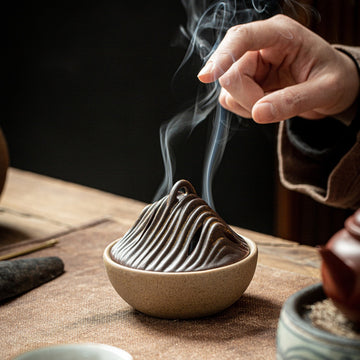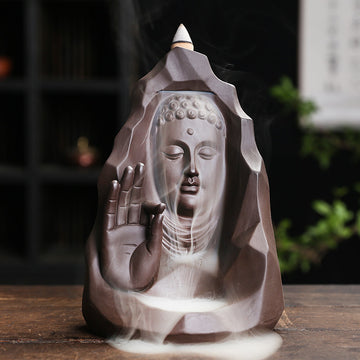Do you remember when Jordan Belfort bought his luxurious house in New York and his wife, the Duchess, applied Feng Shui principles to their new place? This was in the 1980s, a time when Feng Shui was beginning to gain popularity in the USA. Fast forward to 2025, and what was once seen as mysterious oriental witchcraft has become widely accepted, helping people arrange their homes and offices with purpose and balance.
While Feng Shui is now more popular than ever, there are still many people who aren’t familiar with it and have plenty of questions. In today’s article, I’ll be sharing everything you need to know about Feng Shui. Are you ready to dive in? Let’s go!
Feng Shui, a unique and significant aspect of Chinese cultural heritage, is often referred to as "Kanyu" in scholarly terms. The term "Feng Shui" first appeared in the "Book of Burial" by Guo Pu during the Jin Dynasty, where he defined it as "the wind scatters the qi, while water contains it; the ancients gathered it to prevent scattering and guided it to stop, thus calling it Feng Shui." This is the earliest known definition of Feng Shui.
In its application to architecture, Feng Shui typically refers to the selection of suitable sites for residences. However, ancient Chinese philosophy also embraced the idea that "treating the dead as one would the living," which means Feng Shui extends to burial practices as well. Originating during the Warring States period, the core principle of Feng Shui is to explore the harmonious relationship between humans and nature.

Ancient Chinese emperors placed great importance on Feng Shui when selecting palace locations, believing that the right site could ensure prosperity, harmony, and the stability of their reign and the empire.
Initially, Feng Shui focused on the proper selection and orientation of locations for palaces, residences, villages, and burial sites. Over time, its scope expanded to include the planning of cities, gardens, and interior layouts. Through thousands of years of practical application, research, and philosophical contemplation, Feng Shui evolved into a well-established system recognized
Feng Shui originated in ancient China, with its earliest roots found in the primitive worship of nature. Early practitioners, often shamanistic figures, would use rituals to interpret the natural world. Over time, these practices developed into what we now recognize as Feng Shui. During the pre-Qin period, a time of intellectual growth and philosophical exploration, ideas about harmony and balance began to form the foundations of Feng Shui, including concepts like Yin-Yang and the Five Elements. The Book of Changes, Zhou Yi, laid the groundwork for many of these principles, promoting the idea of human harmony with the universe.
As the practice evolved, it became intertwined with Taoism and Buddhism. Taoist thought, which emphasized balance, flow, and the harmony of opposites, heavily influenced Feng Shui. Taoism's concept of Qi (life energy) plays a significant role in Feng Shui practice, focusing on how energy flows through spaces. Buddhism, arriving from India via the Silk Road during the Han Dynasty, also contributed to Feng Shui, particularly in the way that Buddhist temples were sited and constructed. This helped solidify the connection between Feng Shui and spiritual well-being.
During the Han Dynasty, Feng Shui theory began to mature, integrating ideas from the Yin-Yang philosophy and the Five Elements system. The practice began to move beyond basic geomancy and became a holistic system that examined the flow of energy in both the environment and the cosmos. The integration of these systems allowed Feng Shui to move from merely a form of divination to a comprehensive framework for understanding the universe.
In the Wei Jin and Southern and Northern Dynasties, Feng Shui began to merge with popular religious practices, including Taoist and Buddhist thought. The incorporation of Taoist talismans, mirrors, and peach wood for warding off evil spirits became common, while Buddhist concepts like karma and auspicious locations for temples influenced the practice. This marked the shift of Feng Shui from a purely practical tool for selecting auspicious locations to a more mystical and spiritual discipline.
The Tang and Song dynasties saw the formalization of two primary schools of Feng Shui: the Form School (Shape School) and the Compass School (Qi School). The Form School focused on the analysis of natural features like mountains and water, while the Compass School introduced more abstract theories based on the principles of the I Ching and the Eight Trigrams. These schools of thought influenced everything from architecture to urban planning, with notable practitioners like Yang Yunsong establishing lasting theories that shaped the direction of Feng Shui for centuries.
Feng Shui, deeply rooted in Chinese philosophy, revolves around the concept of Qi (气), often translated as life energy or vital force. Qi is believed to flow through all living things and the environment, influencing the health, wealth, and prosperity of individuals. According to Feng Shui, the flow of Qi must be balanced and uninterrupted to create a positive environment. The placement of objects, structures, and even the design of spaces must align with the natural flow of Qi to enhance well-being.
At the core of Feng Shui lies the Taoist principle of Tian Ren He Yi (天人合一), which translates to "the unity of Heaven and Humanity." This concept asserts that humans must live in harmony with the natural world, and by doing so, they can achieve balance in life. Taoism teaches that everything in the universe is interconnected, and maintaining this balance is essential for health and prosperity. Feng Shui practices, such as the positioning of furniture or the selection of materials, are believed to help harmonize the individual with the natural forces of the universe.
The principles of balance and harmony in Feng Shui are rooted in the interaction of Yin and Yang (阴阳) and the Five Elements (五行) — Wood, Fire, Earth, Metal, and Water. These elements are seen as opposing yet complementary forces that must be carefully managed to achieve equilibrium. Feng Shui teaches that the right balance of these elements can cultivate positive Qi, creating an environment conducive to success and tranquility.
Ultimately, Feng Shui is not merely about arranging physical spaces but about aligning one's surroundings with the natural flow of energy to foster health, success, and happiness. It encourages individuals to reflect on their relationship with nature and make conscious efforts to create harmony in their living and working environments.
Feng Shui is a powerful tool for enhancing wealth and prosperity, with ancient Chinese wisdom guiding individuals on how to attract positive energy into their homes. One of the key areas to focus on is the entrance, or 玄关 (xuán guān), often regarded as the "gateway" to fortune. To promote wealth, it's essential to keep the entrance clean and well-maintained. Adding elements like an aquarium or a small fountain can help, as the flowing water symbolizes the continuous flow of wealth. However, it's important to ensure the water flows inward, not outward, to avoid the risk of financial loss.
Another critical aspect is the "wealth corner" of the home, usually located at the right side as you enter. This area should be carefully decorated to attract abundance. Popular items include the "fortune cat" (maneki-neko), which waves its paw toward the door to invite wealth, and symbols of coins, which represent an unending supply of riches. Avoid placing clutter or trash bins here, as they may drive away prosperity. This space should be kept neat, reflecting your openness to wealth and good fortune.

Placing a wealth cat on the right side of the entrance is a Feng Shui choice to attract prosperity.
In addition to these, the living room is the heart of the home and plays a significant role in attracting both people and wealth. The placement of the sofa is crucial—it should be positioned against a wall for stability. Adding decorative items like a beautiful painting of mountains or a crystal ball on the coffee table can enhance both fortune and career growth. Additionally, avoid placing mirrors that face the door, as they can reflect wealth away from the home.
The kitchen also holds great importance in Feng Shui, as it symbolizes nourishment and the flow of wealth through food. The stove, considered the hearth of the home, represents the fire element and is directly associated with financial growth. A copper gourd hanging above the stove can attract good fortune, while keeping knives and sharp objects hidden away is essential to avoid the risk of financial "cuts." Simple additions like fortune messages on the fridge or keeping the space clean can further enhance wealth energy in this critical area.
Lastly, the bedroom serves as a sanctuary for rest and energy rejuvenation, and its Feng Shui affects both health and wealth. Placing a small wealth bowl on the nightstand can ensure that your financial prosperity continues even while you sleep. The bed should be positioned so you can see the door without being directly in line with it, which helps in securing opportunities. Avoid too many mirrors, as they can disrupt sleep and energy flow. By integrating these Feng Shui practices, you can create a harmonious environment conducive to attracting prosperity and maintaining financial well-being.
Feng Shui Layouts Can Also Affect Your Health and Fortune, the concept suggests that your living space, when arranged correctly, can enhance your well-being and promote a balanced life. By understanding how to arrange furniture, choose colors, and design your surroundings, you can foster an environment that nurtures both your body and mind.
One key element in Feng Shui for health is the careful use of natural light, plants, and airflow. Natural sunlight is essential for maintaining energy levels and improving mood. In Feng Shui, a well-lit home is associated with vitality and positivity. It's important to maximize sunlight exposure in the home, especially in areas where you spend the most time, such as the living room and kitchen. Similarly, incorporating plants into your space can enhance air quality, reduce stress, and promote relaxation.

A clean home with natural plants and abundant light fosters positive energy, improving your health and overall well-being.
Airflow is another crucial factor. Good ventilation is vital for maintaining a healthy environment, as it ensures the proper movement of energy, or "Chi," throughout the space. Stale air can create stagnant energy, leading to fatigue and irritability. Therefore, opening windows and ensuring a smooth flow of air can prevent energy blockages that negatively affect your health.
Incorporating these elements of Feng Shui—natural light, plants, and good air flow—creates a harmonious atmosphere that supports both physical and mental health. A well-balanced environment reduces stress, fosters relaxation, and improves overall well-being. By aligning your space with these principles, you can enhance your vitality and enjoy a more peaceful life.
Feng Shui involves many nuances, and neglecting them can easily lead to mistakes that affect the energy flow in your home. Below, I will share some common Feng Shui pitfalls that people often encounter in household settings. Paying attention to these details can help create a harmonious environment and improve well-being.
| Feng Shui Issue | Explanation | How to Fix |
|---|---|---|
| 1. Avoiding the "Opposition Sha" | The "Opposition Sha" occurs when the main entrance aligns directly with the balcony or window in the living room or when the kitchen door faces the bathroom. | Place a screen or a wall between the entrance and the balcony/window, or use other architectural methods to block the direct line. |
| 2. Balcony Should Not Be Cluttered | The balcony is an important channel for energy flow. It should be kept open and bright, and avoid overcrowding plants that block light. | Keep the balcony tidy and avoid over-planting, especially in the southwest and northeast areas, as this can affect family health and fortunes. |
| 3. Avoid Choosing Plants with Thin Leaves | Thin-leafed plants can lead to conflicts and disputes. | Choose broad-leafed plants for the home to avoid arguments and disruptions. |
| 4. Pay Attention to Missing Corners | Some house layouts may have missing corners, which can greatly affect the overall Feng Shui. | Use Feng Shui ornaments or plants of the same element to remedy the missing corner, or consider renovating to fill the gap. |
| 5. Bed Placement | A bed placed with the head facing west can disrupt sleep quality as it causes blood to rush to the head. Beds should not face mirrors or doors. | Position the bed with the head facing east, avoid mirrors in front of the bed, and ensure the bed has a wall behind it for support. |
| 6. Sofa Should Be in a Complete Set | Mixing multiple sofas or adding random chairs can negatively affect family harmony. | Use a complete set of sofas to promote unity and harmony within the family. |
| 7. Bed Should Have Three Walls Behind It | A bed positioned with three walls behind it can make the occupant feel confined, and it may block the wealth flow in the bedroom. | Ensure the bed has an open space behind it and is not surrounded by walls on three sides to maintain a balanced flow of energy and wealth. |
| 8. The Entrance Should Lead to the Living Room | Entering the house should lead to the living room, not to the kitchen or bathroom, as this disrupts the flow of energy. | Ensure that when entering the home, the first thing you see is the living room, not the kitchen or bathroom. |
| 9. Children's Room Decoration | Bright colors in a children's room can negatively affect their health and development. | Use warm colors for decorating children's rooms and avoid overly bright or harsh colors. |
| 10. Main Door | The main door should not face an elevator or align with windows or back doors, as it disrupts the energy flow and leads to financial losses. | Avoid having the main door face an elevator or directly aligned with windows and back doors. Use partitions or barriers to block the direct line. |
| 11. Balcony Facing the Kitchen | If the balcony faces the kitchen, it causes the energy and wealth to flow out, leading to unstable income, unemployment, and family disputes. | Place a screen, curtain, or plants to separate the balcony from the kitchen, or consider using furniture to block the direct view between the two areas. |
| 12. Bedroom Door Facing Main Door | Having the bedroom door face the main entrance can lead to health and financial issues, as it is believed to invite negative energy into the bedroom. | Ensure that the bedroom door does not directly face the main entrance, and consider using a hallway or other partitions to separate the two doors. |
| 13. Beams Overhead are Unfavorable | Having overhead beams above the bed, desk, or dining table creates negative energy, affecting emotions, health, and career. | Install a ceiling or decorative treatment to block beams, or use other methods to redirect the energy away from the bed or table. |
| 14. Bedroom Shape Should Be Regular | Irregularly shaped bedrooms can cause fertility or relationship issues, especially in the main bedroom. | Use a regular-shaped room as the master bedroom to avoid complications such as infertility or problems in relationships. |
| 15. Bathroom Facing the Bed Causes Illness | A bed facing the bathroom, whether directly or indirectly, is considered unhealthy and can lead to serious illness. | Position the bed so it does not face the bathroom, ensuring the health and energy flow remains positive. |
| 16. Large Paintings Above the Bed | Large, heavy paintings above the bed can be dangerous, as falling artwork could cause injury, and it may also affect emotional and physical well-being. | Avoid large, heavy paintings over the bed and opt for smaller, lighter artwork. |
| 17. Main Door Should Not Lead Straight Through the House | A long hallway leading directly from the main door to several rooms is believed to create instability in relationships and cause problems like infidelity. | Use partitions or walls to block a direct corridor leading from the main door to multiple rooms. |
The Bagua map is a vital tool in Feng Shui, used to analyze the energy flow in spaces such as homes and offices. It consists of eight trigrams, each composed of three lines, which represent different natural and life states. These trigrams are: Qian, Kun, Zhen, Xun, Kan, Li, Gen, and Dui, and they reflect various aspects of the universe and human life. The Bagua map helps determine how to arrange a space to enhance positive energy and remove negative influences.
In Feng Shui, the Bagua map is applied to the layout of a home or office by aligning the map with the main entrance. Each area of the Bagua represents specific life aspects, such as wealth, health, relationships, and career. For example, the Zhen trigram in the east symbolizes vitality and progress, so placing objects that promote career and education in the eastern part of the space can stimulate personal growth.

The Bagua map in Feng Shui architecture is used to regulate the flow of energy, optimize space layout, and promote positive energy while eliminating negative energy.
To apply the Bagua map, divide your home or office into nine sections according to the map. Then, focus on enhancing the areas related to specific life goals, using elements such as plants, mirrors, or colors to improve energy flow and create a harmonious, supportive environment.
As someone deeply influenced by Chinese Feng Shui culture, my advice is to incorporate simple Feng Shui principles into daily life. These include maintaining a clean and organized home, ensuring proper lighting and ventilation, and spending time in nature to create a balanced environment.
By following these basic principles, you can foster positive energy, enhance well-being, and promote harmony in your surroundings. These practices are easy to implement and can have a significant impact on your daily life.
For more significant decisions, such as purchasing a home, choosing an office space, or selecting a burial site, applying more advanced Feng Shui principles is worth considering. In these cases, a deeper understanding of Feng Shui can help align with the natural flow of energy, contributing to long-term success and prosperity.
How does Feng Shui affect my home?
Feng Shui affects your home by improving the energy flow, which can enhance health, relationships, and prosperity. Proper placement of furniture and objects can help balance the energy in your space.
Can Feng Shui help with career success?
Yes, Feng Shui can help improve career success by positioning elements like your desk or office space to encourage focus, productivity, and positive energy flow, which can lead to new opportunities and achievements.
Do I need to follow Feng Shui rules strictly?
While traditional Feng Shui principles can be beneficial, it's not necessary to follow every rule strictly. It’s more important to create a comfortable and balanced space that feels right for you.
How can I improve Feng Shui in my bedroom?
To improve Feng Shui in the bedroom, ensure your bed is placed in a commanding position, avoid clutter, and choose calming colors. This promotes rest, relaxation, and good health.

